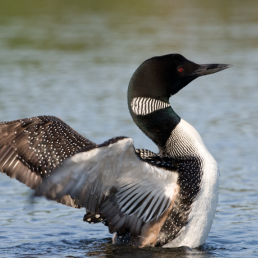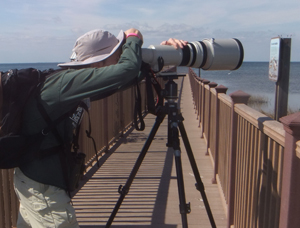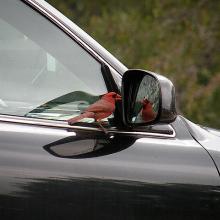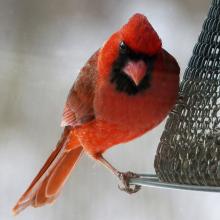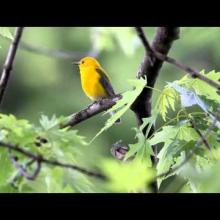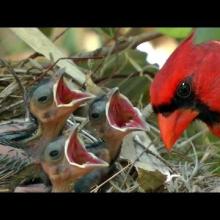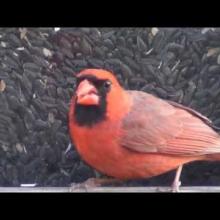

Join BirdNote tomorrow, November 30th!
Illustrator David Sibley and actor H. Jon Benjamin will face off in the bird illustration battle of the century during BirdNote's Year-end Celebration and Auction!
Tucked away in southeast Texas is one of the most remarkable enclaves of nature. Known as The Big Thicket, this region is home to ten different ecosystems, including cypress bayous, arid sandylands, palmetto thickets, pine forests, marshes, and grasslands. The variety of natural landscapes provides habitat for a broad array of birds, including this Prothonotary Warbler.
This show is brought to you by The Bobolink Foundation. The soundscape was recorded by Gordon Hempton and provided courtesy of QuietPlanet.com.
BirdNote®
The Big Thicket, America’s Ark
Written by Bob Sundstrom
This is BirdNote.
[Sounds of a wetland forest bayou]
Tucked away in Southeast Texas is one of the most remarkable enclaves of nature. Known as The Big Thicket, this natural region is home to ten different ecosystems ranging from cypress bayous and arid sandylands to palmetto thickets, pine forests, marshes, and grasslands.
Such a wide variety of natural landscapes provides homes for a broad array of birds and other wildlife. More than 1,300 species of plants – including 30 wild orchids – have been tallied in The Big Thicket. Small wonder the region has been called “America’s Ark.” This spectacular diversity of plants is made possible by the dozens of soil types deposited by the outflow from melting glaciers at the end of the last Ice Age.
Since the 1970s, the National Park Service has set aside nearly 100,000 acres (or about 3%) of this biogeographic region. Called the Big Thicket Natural Preserve, a valuable piece of this utterly unique natural world has been conserved.
Let’s listen again to “America’s Ark,” as Bullfrogs sing alongside Northern Cardinals and Prothonotary Warblers.
[Sounds of the wetland forest bayou, bullfrogs, Northern Cardinal, Prothonotary Warblers]
Today’s show is brought to you by The Bobolink Foundation. The soundscape featured was recorded by Gordon Hempton and provided courtesy of QuietPlanet.com.
[Wetland forest bayou continued]
###
1992.05.16b Wetland forest bayou day bird activity and 1992.05.18a 18A Wetland forest Bayou frogs and birds recorded by Gordon Hempton, of QuietPlanet.com
BirdNote’s theme music was composed and played by Nancy Rumbel and John Kessler.
Producer: John Kessler
Executive Producer: Chris Peterson
© 2013 Tune In to Nature.org July 2018 / January 2023
https://quietplanet.com/ Narrator: Mary McCann
ID# bigthicket-01-2013-07-08 bigthicket-01
